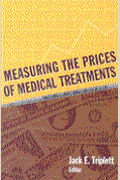Studies in this week’s Hutchins Roundup find that models of inflation dynamics should account for global factors, even moderate levels of car pollution are harmful, and more.
Want to receive the Hutchins Roundup as an email? Sign up here to get it in your inbox every Thursday.
Inflation is increasingly determined by global economic factors
Global factors are playing a greater role in inflation dynamics than many standard models capture. Using three different empirical methods—principal component analysis, Phillips Curve regressions, and trend-cycle decomposition—Kristin Forbes of the Massachusetts Institute of Technology finds that global commodity prices, the world output gap, exchange rates, and the distribution of producer prices that affect global supply chains can all significantly affect inflation, even after controlling for standard domestic variables. Although results vary across individual countries and measures of inflation, the importance of some of these global factors in explaining CPI inflation rates has also increased over the last decade. In particular, the world output gap and commodity prices have played an increasing role in explaining headline and cyclical inflation, while producer prices have played a decreasing role. Global factors should no longer play an ancillary role in models of inflation dynamics, she concludes.
Car pollution is harmful, even at moderate levels
Exploiting the dispersion of emissions-test-cheating Volkswagen diesel cars—which polluted up to 150 times as much as gasoline cars—Diane Alexander of the Federal Reserve Bank of Chicago and Hannes Schwandt of Northwestern University conclude that car pollution is harmful to human health. They find that for each additional test-cheating diesel car per 1,000 cars—approximately equivalent to a 10% increase in car exhaust—there was a 2% increase in fine particulate matter in the air, a 1.9% increase in the rate of low birthweight, and an 8% increase in asthma emergency department visits among young children. Although the adverse outcomes affected all socio-economic groups, they were particularly pronounced among the affluent, likely because the Volkswagen cars were driven by richer families. The authors conclude that there are strong direct health effects from car pollution, even at moderate levels, and suggest that emission regulation needs to be combined with stronger enforcement to tackle a society-wide health threat.
Privatizing Medicaid increases cost, but leads to better health outcomes
In a subset of counties during the mid-2000s, Texas switched disabled Medicaid beneficiaries from public plans to private plans. By comparing health spending in counties that privatized with counties that didn’t, Timothy Layton of Harvard Medical School and coauthors find that privatization improved patient health—and increased Texas’s spending on health care by 12%. The cost increase resulted from a combination of higher utilization by outpatients and weaker rationing of services by providers. Private plan enrollees, for example, are not subject to the prescription drug limits in Texas’s public Medicaid program. The authors find that privatization decreased inpatient spending by 8%, with most reductions coming from mental illness, diabetes, and respiratory conditions. They interpret this reduction as an indication of higher quality care in the private plans. The authors conclude that conventional wisdom that privatizing Medicaid saves money or leads to worse outcomes in Medicaid is wrong; instead, it leads to better outcomes, but comes at a higher cost.
Chart of the week: Income, even after taxes and transfers, grows faster for top 1% than rest of population

Source: Congressional Budget Office
Quote of the week:
“If the goal were only to conduct a [stress] test that was difficult to pass—like the qualifying exams for some of the more esoteric and restrictive high-IQ societies—then trying to explain principles, scenario design, and how models work would be inappropriate. If the measure of success for the Fed in administering a stress test was simply how many banks failed, then greater transparency would indeed be a mistake. But that is not the purpose of stress testing, and it never has been,” says Randal Quarles, vice chair for supervision of the Federal Reserve.
“The vitally important goal is to improve and sustain good risk management and capital planning at the individual institutions we supervise and to promote the stability of the financial system. Like a teacher, we don’t want banks to fail, we want them to learn. In this case, we want them to learn good risk management in the context of forward-looking capital planning.”











Commentary
Hutchins Roundup: Inflation dynamics, car pollution and more
July 11, 2019
Studies in this week’s Hutchins Roundup find that models of inflation dynamics should account for global factors, even moderate levels of car pollution are harmful, and more.